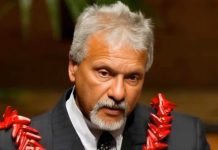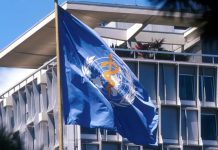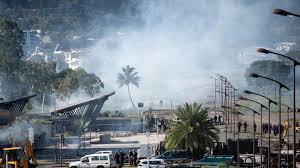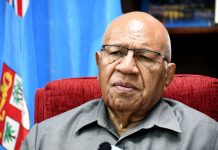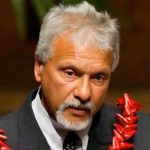Renewed protests have erupted in New Caledonia after indigenous Kanak independence activists that French authorities blame for last month’s riots were arrested and some transferred to pre-trial detention in France.
France’s High Commission to the Pacific island territory on Monday said there had been a night of “agitation and unrest” in the capital Noumea and in other parts of the French overseas territory. Protestors set fire to police buildings and vehicles and private cars, it said.
New Caledonia has been rocked by unrest for more than a month after pro-independence activists rioted in response to a proposed constitutional change that would dilute the voting power of indigenous Kanaks.
Nine people have died, dozens were injured and businesses were torched, causing substantial financial losses, during the unrest that began in mid-May.
Noumea public prosecutor Yves Dupas, in an interview Sunday with New Caledonia’s Radio Rhythm Bleu, said seven of the 11 people arrested in recent days, including protest leader Christian Tein, were transferred on the weekend to a variety of prisons in France.
“Indeed they are dispersed but I also want to say they are not placed in solitary confinement at this stage,” Dupas said.
The accused were taken on a chartered flight from New Caledonia to France and their removal was necessary to ensure the judicial process is carried out calmly and without undue pressure, he said.
They face charges of being part of an organized criminal conspiracy to carry out theft, arson and destruction and of complicity in attempted murder, according to Dupas.
The arrested activists are members of CCAT – the French acronym of Cellule de Coordination des Actions de Terrain or Field Action Coordination Cell – which is a part of the broader Kanak independence movement.
Kanaks are about 40 percent of New Caledonia’s 270,000 people but are marginalised in their own land – they have lower incomes and poorer health than Europeans who make up a third of the population and occupy most positions of power in the territory.
Last month’s unrest was the worst political violence in the Pacific territory located between Australia and Fiji since the 1980s. The riots erupted May 12 as the lower house of France’s parliament debated and subsequently approved a constitutional amendment to unfreeze New Caledonia’s electoral roll, which would give the vote to thousands of French immigrants.
Final approval of the amendment requires a joint sitting of France’s lower house. French President Emmanuel Macron said such efforts should be suspended following his call earlier this month for a snap general election in France.
France’s control of New Caledonia gives the European nation a significant security and diplomatic role in the Pacific at a time when the United States, Australia and other Western countries are pushing back against China’s inroads in the region. New Caledonia also has valuable nickel deposits that are among the world’s largest.
Pierre Ortent, a lawyer for Tein, said the decision to remove his client from New Caledonia came out of the blue and he has launched an appeal.
“We learned of this after the decision had been made. So we were surprised and stupefied. We’ve already appealed the decision. It will be decided by the Court of Appeal,” Ortent said Saturday in an AFPTV video.
“I’d say he’s not serene, but he’s determined. He’s thinking about it, and quite simply, he’s already preparing his defence, in other words, fighting to win his case in court,” Ortent said.
Dupas, in his radio interview, said investigations are continuing, but appeared to play down the possibility that elected members of New Caledonia’s pro-independence Congress would be arrested.


